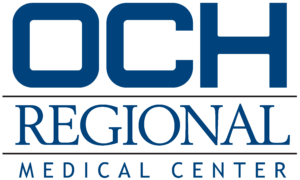Right outside of Davis Wade Stadium on game day is the OCH Regional Medical Center Ambulance. While thousands of fans walk past the emergency response vehicle, no one ever expects or wants to end up in the vehicle. But for years, OCH has been committed to providing the service to Mississippi State and its fans, and now, a partnership between OCH, University of Mississippi Medical Center and MSU has enhanced the emergency services.
“We’ve worked together to develop a plan to ensure we’re prepared to provide onsite treatment for the fans, athletes and staff. The scope of what we are doing is unlike anything we’ve seen in the SEC, and it’s something we’re very proud of,” said OCH EMS Director Michael Hunt.
The plan includes providing critical care paramedics to support OCH EMS and the MSU Athletic Department, as well as the ability to stabilize and transport a critical patient two hours to definitive care. On-field emergency kits provide airway control, IV access and initial emergency medications. A portable digital screening x-ray machine with associated equipment and protective lead vest are also on standby.
“UMMC established the Mississippi Center for Emergency Services (MCES) in 2014 to improve the outcomes of those patients who are treated in the pre-hospital area during daily emergencies and devastating disasters,” said MCES Medical Director Damon Darsey, MD, FACEP. “This innovative partnership with OCH and MSU Athletics ensures that needed care is provided promptly, with a level of care matching even the most severe of injuries. How quickly something is treated is a significant factor for a positive outcome.”
The emergency response plan was crucial when Alabama quarterback Tua Tagovailoa was injured in the November 16 game at Mississippi State’s Davis Wade Stadium. All eyes turned to the medical cart that transported Tagovailoa off the field, and later as he was transported in the critical care ambulance.
Operations Director for North Star Paramedic Services Edgar Calloway has provided sideline care to University of Alabama players for 24 years, and he praised the collaborative efforts that resulted in immediate care.
“Traveling with Alabama, I’ve been to a stadium or two,” laughed Calloway, “and the care that was provided by OCH and UMMC was as good as any place I’ve ever been associated with.” “They were quick to offer transport to OCH in UMMC’s critical care ambulance. They allowed physicians from Alabama to be involved in the process, while at the same time providing the things only OCH was able to provide because of the resources they had locally,” explained Calloway.
While thousands of fans look forward to an exciting Egg Bowl this Thanksgiving at Davis Wade Stadium, even rivalry teams can agree on one aspect—that emergency responders won’t play a part in the game. But either way, they’ll be standing ready on the sidelines, and that’s one more thing to give thanks for this Thanksgiving.
